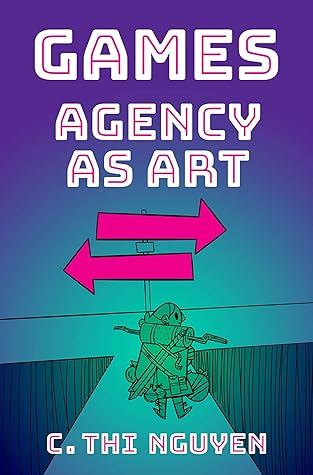More on this book
Kindle Notes & Highlights
Games turn out to be part of the human practices of inscription. Painting lets us record sights, music lets us record sounds, stories let us record narratives, and games let us record agencies.
The rules of the game tell us to care about something and we start caring about it.
The common artistic medium of aesthetic striving games—the technical resources by which the game designer sculpts practical experience—are the goals, the rules, and the environment that these various parts animate into a system of constraints. The game designer crafts for players a very particular form of struggle, and does so by crafting both a temporary practical agency for us to inhabit and a practical environment for us to struggle against. In other words, the medium of the game designer is agency. If you want a slogan, try this one: games are the art of agency.
This is the danger of exporting back to the world a false expectation: that values should be clear, well-delineated, and uniform in all circumstances. Games threaten us with a fantasy of moral clarity.
But when we try to make the rest of life like a game, we will need to adapt our enduring ends to make the struggle more pleasurable and satisfying.
One of the greatest pleasures games offer is a certain existential balm—a momentary shelter from the existential complexities of ordinary life. In a game, for once in my life, I know exactly what it is that I’m supposed to be doing.
Though we generally avoid painful emotions in life, we actually seek out art that will introduce painful emotions into our lives.
I argue, instead, for the opposite conclusion: that the restrictions and specifications of the agential medium offer a special path to enriching our long-term freedom and autonomy.
Alternately, we might conceive of autonomy as responsiveness to reasons. Autonomous agents are the ones who adjust desires, motivations, and actions in response to the real reasons that bear on them (Wolf 1993; Fischer and Ravizza 1998).6 Games can help us become more autonomous under either sort of account.
To be more autonomous, I have to be able to move between the various agential modes. I also need to be able to select the right one for the situation.
And strategic games can transfigure my experience of parties, meetings, of navigating social relationships, and the sense of how I might work to bind people together or tear them apart.


